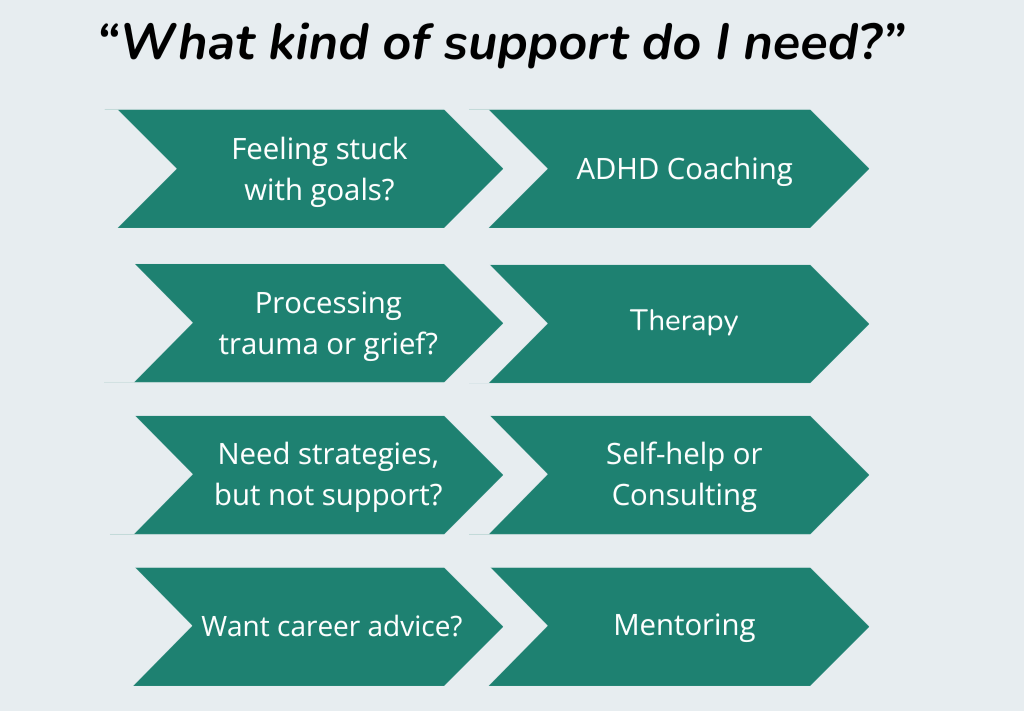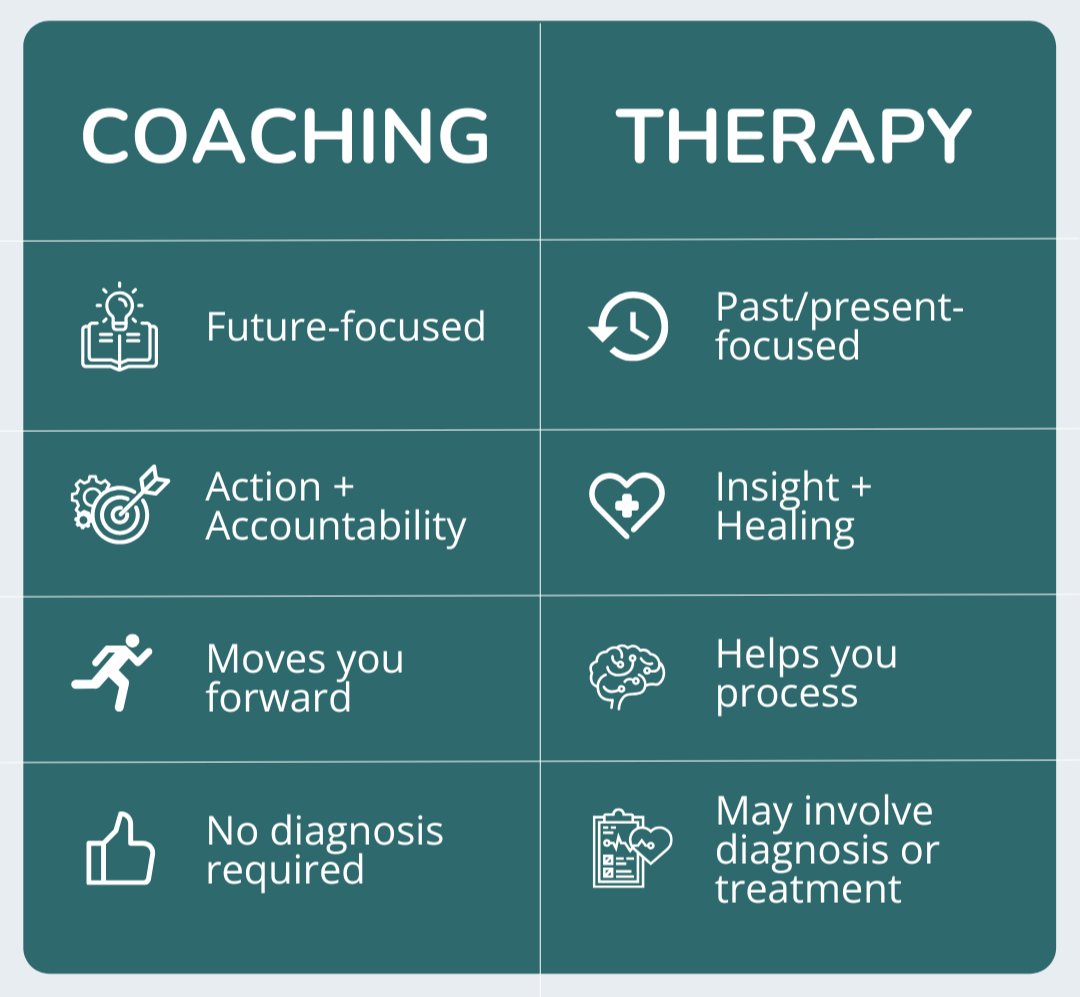What’s the difference between ADHD coaching and therapy?
Here’s a guide to finding support that suits you.
Navigating life with ADHD isn’t easy, but the good news is that a lot of support is available. The next step is figuring out what’s right for you. A common question is: Should I work with a therapist, or try coaching instead?
Both coaching and therapy offer safe, supportive spaces to reflect, learn, and grow. But they serve different purposes. In my initial discovery sessions with clients, I make sure to explain this distinction, which helps them feel confident that they're in the right place.
Here's a metaphor I use to explain the difference:
Imagine you’re learning how to ride a bike...
A therapist might help you explore why you’re afraid of falling, or how your early experiences with risk and safety shaped that fear.
A mentor might offer tips on how to balance and steer, or share what worked for them.
A consultant could explain the physics of cycling, or build a bike that conforms to your body proportions.
A coach runs alongside you. We check in, ask where you want to go next, and help you reflect on what did and didn’t work after each ride.
Coaching is about helping you move from Point A to Point B. It’s action-oriented, practical, and forward-looking. At the same time, it’s also a safe space for you to be your whole self in the process.
Which one is right for you?
Here’s a comparison to help you decide:
ADHD Coaching might be a good fit if...
You’re motivated to make a change, but something keeps getting in the way
You want support that’s focused on action, not analysis
You’re in a life transition — a new job, parental leave, or burnout
You need structure, accountability, and tools that work for your brain
Therapy might be a better fit if...
You’re experiencing anxiety, depression, or trauma that interferes with daily life
You want to explore emotional pain, patterns of behaviour or life events from your past
You’re not ready to take action yet and need time to process or heal
Your symptoms are psychological in nature, not primarily based on executive function challenges
Here’s how this plays out in real life.
Take overwhelm, a common struggle for people with ADHD.
A therapist might explore the emotional roots of that overwhelm: where it comes from, how it shows up in your daily life, and what patterns lie underneath. These insights can be life-changing.
As a coach, I help you face the overwhelm and make it manageable. We identify what's most important, build structure around your tasks, and find tools that work with your ADHD, not against it. In this way, you can consistently follow through on your tasks without letting overwhelm paralyze you.
What if you want both?
Many of my clients work with both a therapist and a coach. Therapy helps them make sense of the past. Coaching gives them a framework to build a flourishing future.
If you're still unsure about which path is right for you, that's okay - we can help you figure it out. Coaching isn't a substitute for therapy, and if therapy seems like a better first step, we'll say so. We're also happy to refer you to a trusted professional.
The bottom line
Therapy helps you understand where you've been. Coaching helps you decide where you're going, and how to get there.
We're here to walk (or cycle!) alongside you as you move forward, and we’ll bring structure, compassion, and strategies that work with your ADHD.
Curious about ADHD coaching specifically?
For a deeper understanding of ADHD coaching, check out this article:
👉 What is ADHD Coaching (and how is it different from regular coaching)?
Or, if you're ready to explore what coaching could look like for you, book a discovery session at the link below, and let’s talk!



